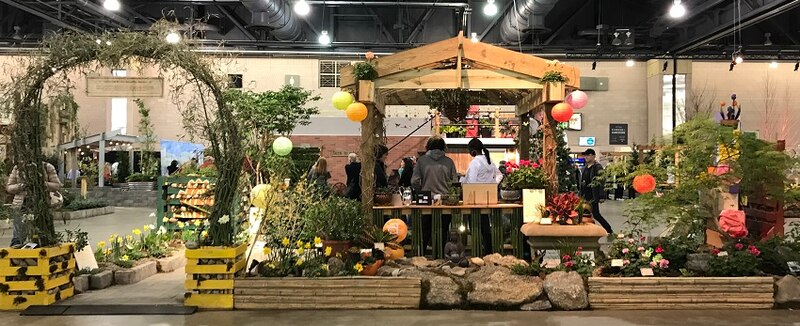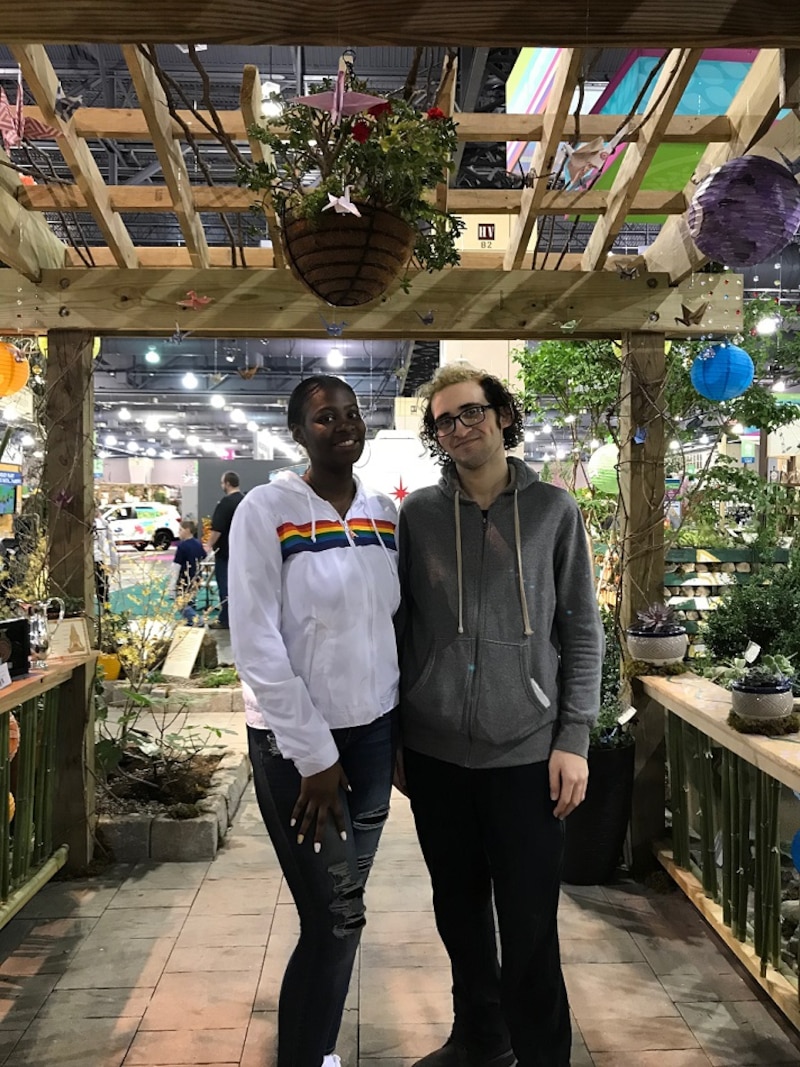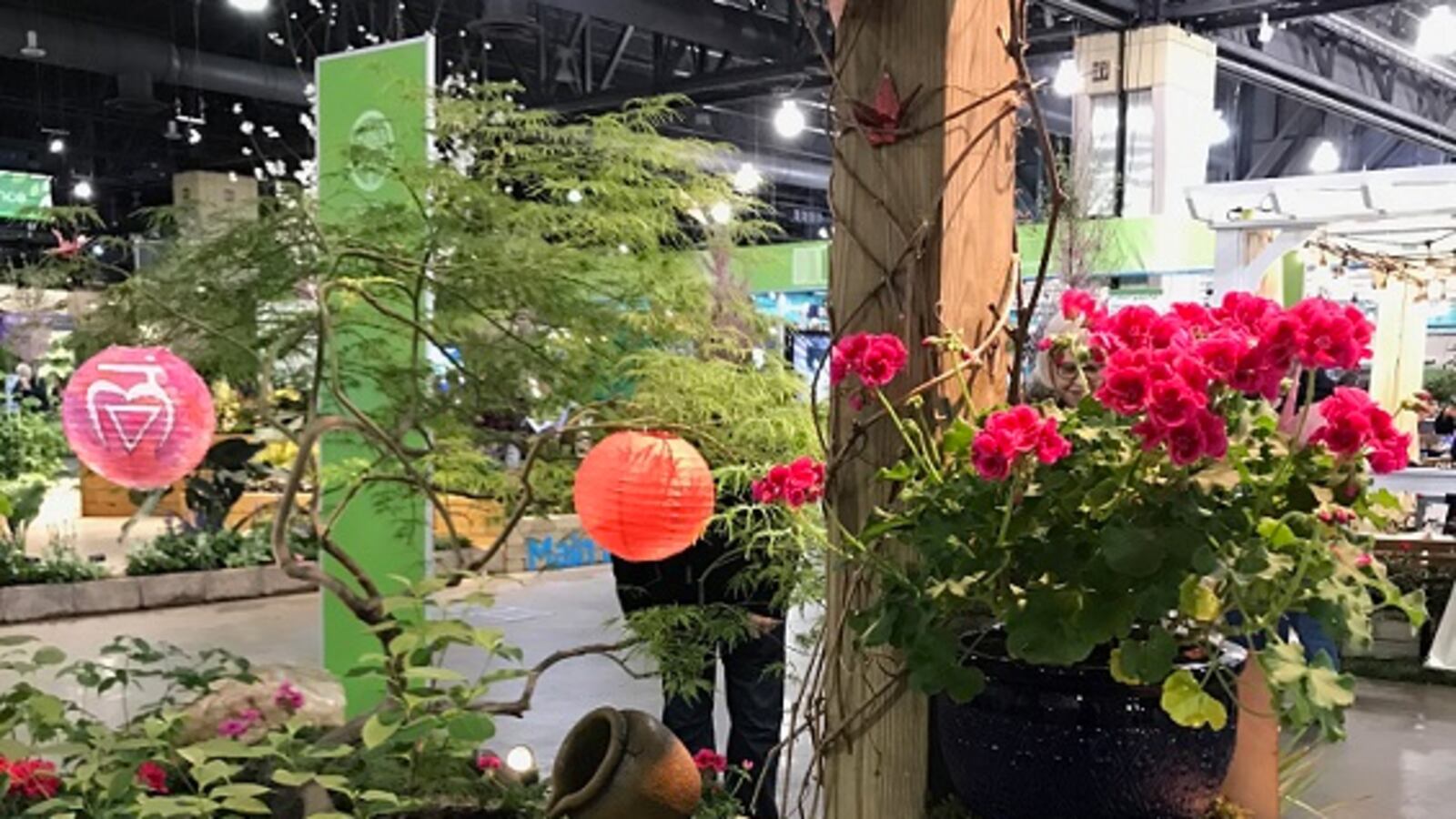This article was originally published in The Notebook. In August 2020, The Notebook became Chalkbeat Philadelphia.
There are not many zen gardens in the heart of Philadelphia, but for the week of the Flower Show, students at Walter B. Saul High School have created one in the Pennsylvania Convention Center.
Saul is the largest agriculture high school in the country, and it has created a display in the Philadelphia Flower Show for more than 30 years. According to horticulture teacher Lisa Blum, Saul is asked to return each year because they get a good response from the public and from the show organizer, the Philadelphia Horticultural Society.
“It’s kind of just a longstanding tradition,” Blum said.
Saul is a STEM-based special admission school, located on 130 acres in Roxborough, where students decide on one of four majors after their freshman year: environmental science, food science, animal science and plant science, also known as horticulture.
About 40 junior and senior horticulture majors worked on designing, building, and planting the exhibit.
The theme of this year’s show is Flower Power, and Saul “interpreted it as the power that flowers, in the larger sense, have in terms of helping humans with our mental health,” Blum said.
She noted that plants have healing power, both physically and mentally. They decided to focus primarily on Zen traditions and the Indian chakra and built an exhibit that corresponded with the colors of the seven chakras.
Ayania Singleton, a junior horticulture major at Saul, said, “Every color is for every piece of your body and your feeling.”

Photo by Maya Wernick
The walk-through exhibit includes a gazebo, with plants branching out in each color of the chakra, as well as origami, water features, and an arch.

Saul students Ayania Singleton (left) and Giancarlo Fowler. (Photo: Maya Wernick)
Singleton emphasized the importance of making their exhibit accessible for everyone, including people who use wheelchairs.
Saul is among three local high schools competing in the educational class of the show. The two others are Lincoln High School in Philadelphia’s Mayfair section, and Lakeside School, a North Wales-based therapeutic school with a focus on special education. Lincoln has a horticulture program, and Lakeside uses horticulture as a means of therapy for its students. The other schools in the category are universities.
“Being a public high school, our resources are really, really slim,” Blum said. “Our kids work super, super hard.”
Saul won a bronze medal from the Philadelphia Horticultural Society, as well as a Special Achievement award from the Garden Club Federation of Pennsylvania.
“I feel like it’s harder work for the high schools,” said Giancarlo Fowler, a junior at Saul.
Blum said that it is a challenge managing all of the personalities as well as the “life issues” that high schoolers may have, but the whole experience becomes worth it at the end. “The kids take such ownership. They are so proud of building something from nothing. That’s what gets me ready for next year.”
For Singleton, the goal for the display was simple: “What can we do to make it feel like you’re at home?”

